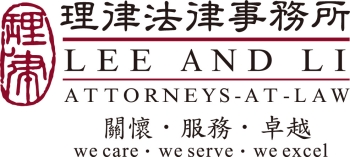In patent infringement civil lawsuits, the accused party cannot only claim invalidity of the patent with the civil court, but can also initiate a cancellation action with the Taiwan Intellectual Property Office (TIPO) for the invalidation of the patent. Such a two-track mechanism may lead to a difference of opinion between the civil court and TIPO.
If in its final judgment a civil court rules that the patent asserted is valid and grants the patentee's request, but TIPO subsequently revokes the patent, can the accused party initiate a retrial on the grounds that the patent was revoked in accordance with Item 11, Article 496(1) of the Code of Civil Procedure, which provides that cases may be reheard if the "referenced administrative decision, based on which the civil judgment was entered, was changed"? The Supreme Court and the IP Court held contradictory views.
In Judgment 2013-Min-Zhuan-Shang-Zai-4 (September 5 2014), the IP Court denied the right of the accused party to file a retrial on the grounds that the patent at issue was revoked. The reason was that Article 16 of the Intellectual Property Case Adjudication Act had already bestowed on the civil court the authority to adjudicate a patent's validity. The civil court's determination on the patent validity was therefore made after evidence investigation and fact-finding procedures had been conducted, and did not rely on TIPO's decision to grant the patent at issue.
However, the IP Court judgment was reversed by the Supreme Court's Civil Judgment 2015-Tai-Shang-Zi (March 12 2015). The Supreme Court ruled that a patent right is gained through an effective administrative decision granting a patent through TIPO. Based on such an administrative decision, the patentee can initiate patent litigation when the patent right is infringed. That the accused party was held liable under the original binding judgment was due to the fact that the party infringed the patent at issue. Therefore, the administrative decision granting the patent formed the basis of the judgment. In addition, according to Articles 82 and 120 of the Patent Act, where an invention patent is revoked finally and bindingly, the effect of the patent right shall be deemed not to have existed from the beginning, so it should be considered that the administrative decision (ie, granting the patent) that formed the basis of the judgment has been changed. Thus, if an accused party files a retrial based on these grounds, such grounds will be in line with the requirement provided in the Code of Civil Procedure. The Supreme Court also pointed out that the original judgment in this case was disputable, since the original court did not actually determine the patent validity because the accused party delayed presenting the patent invalidity arguments and the original court thus dismissed them.
An accused party which receives an unfavourable binding judgment can file for a retrial if the patent at issue is revoked through the cancellation action. In this case, the IP Court declined to investigate the defendant's patent invalidity arguments because such arguments had not been advanced until appeal. The IP Court's handling of the case was criticised by the Supreme Court, which held that "the original court did not actually determine the patent validity" and hence the accused party's filing for retrial was approved. Thus, whether the IP Court will always examine the delayed patent invalidity arguments submitted only in appeal, and avoid using the provision regarding the preclusion effect of late submission under the Code of Civil Procedure, is worthy of observation.
For further information on this topic please contact Hsiu-Ru Chien or Shih-I Wu at Lee and Li Attorneys at Law by telephone (+886 2 2715 3300) or email ([email protected] or [email protected]). The Lee and Li website can be accessed at www.leeandli.com.




